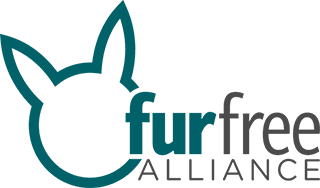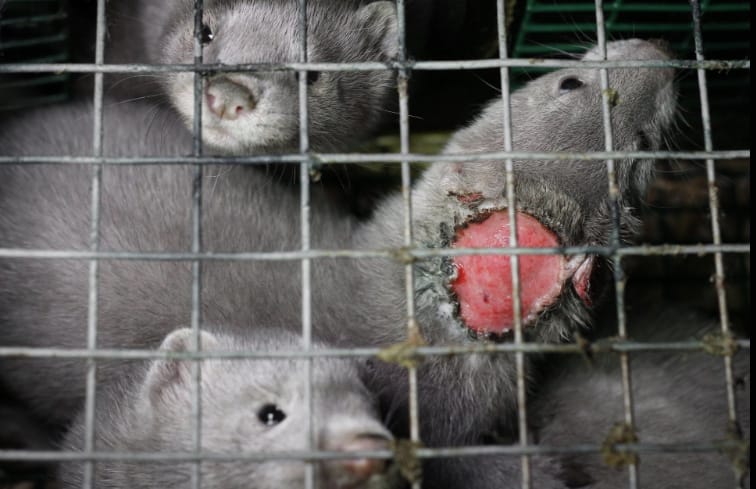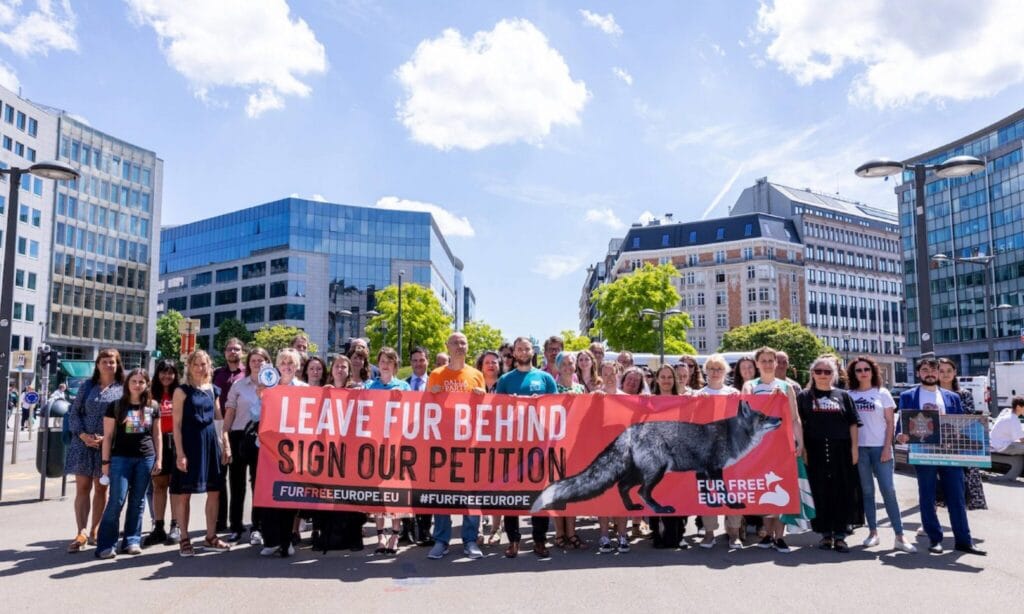
Bill to ban fur farming in Lithuania passed second reading
VILNIUS, 6 JUNE 2023 – Today, a prohibition on the breeding and killing of animals for fur in Lithuania passed its second reading at the Seima (Lithuanian Parliament). Animal advocates worldwide applaud Lithuania for taking steps to become the 20th European country to ban fur production.
The draft legislation, which is scheduled for its final reading in September, would spare approximately one million animals a year immense suffering on Lithuanian fur farms.
The vote follows a recent exposé, published by Lithuanian Fur Free Alliance member organisation Tusti Narvai, of the hideous conditions on eight mink fur farms captured in 2019, 2022 and 2023. The harrowing footage shows farm workers beating the mink before throwing them into lethal gas chambers, where the animals can be seen to slowly suffocate until they finally die in agony.
In February, Fur Free Alliance animal advocate groups urged the Lithuanian government to take immediate action and end the widely-condemned practice of fur production. Read our joint letter to Lithuanian Agriculture Minister Avickas here.
Gabrielė Vaitkevičiūtė, head of the animal protection organization Tušti Narvai, says:
“Such a decision by members of the Seimas proves once again that Lithuania is ready to say goodbye to the industry that tortures animals for decoration, for a blunder on a hat or collar. I have no doubt that we will soon join the 19 countries in Europe that have already taken this decision. Of course, the last vote in the Seimas is still waiting, which will take place only in autumn at the earliest.”
More than 15 thousand letters were sent to members of the Seimas in the last two weeks, urging them to vote in favour of banning fur farms.
“The public has clearly shown its expectations to the members of the Seimas, particularly after the publicised images from Lithuanian fur farms. Naturally, after seeing the beating and throwing of animals, more people wanted to write to the members of the Seimas and ask them to ban this cruel branch of business. I am convinced that some members of the Seimas would have voted differently if they had not received these letters,” adds G. Vaitkevičiūtė.
There are as many as 44 mink fur farms and 31 chinchilla fur farms in Lithuania. Around one million mink and 30.000 chinchillas are killed every year on Lithuanian fur farms.
The draft law still awaits the notification of the European Commission, adoption in the Seimas hall and signature of the President. After the adoption of the law, the activity of fur farming would be prohibited in Lithuania starting January 2027.
In recent years, a number of investigations, recorded in 2016, 2018, 2019, 2022 and once again in 2023, revealed atrocious conditions and severe welfare violations on Lithuanian fur farms, including heavily injured mink and acts of cannibalism.
Mink are predatory, wide-ranging animals that are not adapted to living in battery cages. The stress of living in small cages with other animals causes extreme abnormal behavior, such as cannibalism, self-mutilation and fighting injuries. Stress-related behavioural disorders, such as pelt biting and infant mortality, are also highly common on chinchilla fur farms, as has been shown by international studies.
Not only is fur production inherently cruel to animals, it is also extremely harmful for the environment. Fur farms in Lithuania have been consistently reported to violate waste disposal regulations causing severe ecological damage.
With today’s vote, Lithuania is yet one step closer to join a growing list of countries that are moving away from fur cruelty. In the past five years alone, 7 European countries introduced legislation to prohibit fur farming, including Slovakia, Norway, Ireland, Italy, Estonia, Malta and most recently Latvia. At this moment, fur farming bans are on the parliamentary agenda in Poland and Romania.





